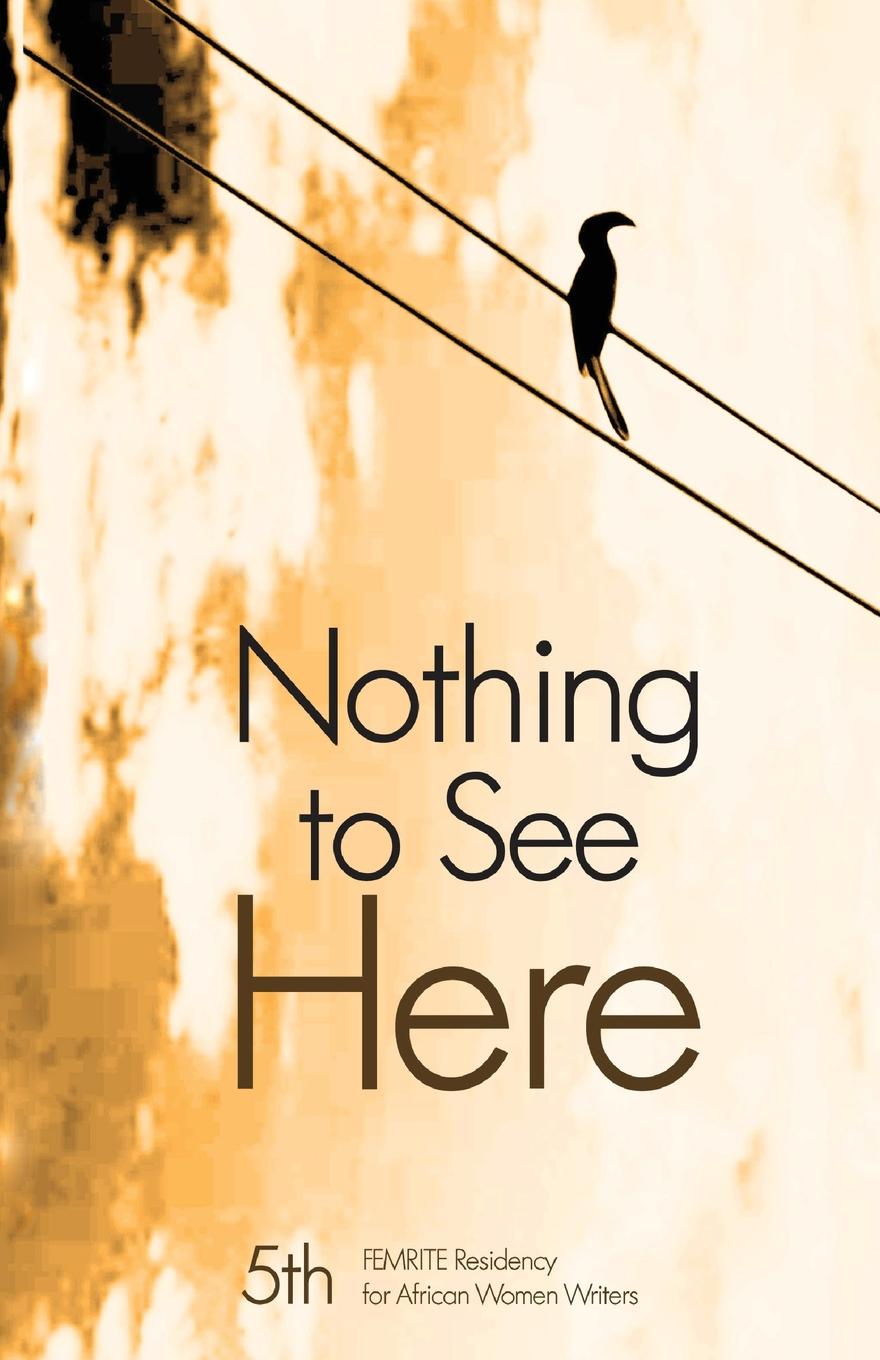Nothing to See Here
5th FEMRITE Residency for African Women Writers
Review by: Rosetta Codling, for readafricanbooks.com

Nothing to See Here
Edited by Hilda Twongyeirwe
The short story collection Nothing to See Here (2015) is a literary house unto itself. Readers must not assume that these new stories will be like others. Each writer within Nothing to See Here (2015) dwells in a different house encased under one dome.
The first short story in this book is entitled: “Always The Head” (Melissa Kiguwa). Identity or the quest for identity is one of the themes here. The female protagonist searches for the meaning of her family name, Ngenyo. The meaning…. the deeper ‘meaning’ of her father’s name and absent ‘being’ is the primary quest. First, she finds someone with the same name online. The person is successful and she is pleased. Still, she hungers and cannot obtain definitive, concrete information about her name from her mother. Although, her mother tries to help her daughter, the links between the mother and the father are lost. A ghost name and a man which abandoned his wife and child casts a long shadow. The name is merely a brand for an abandoned mother. The brand surfaces as scar upon a daughter as it mutilates her romantic life.
Humor and irony await readers as readers enter the house of Sylvia Schlettwein through her selection: “Short Cut.” The GPS is the navigator of the discourse of events. Here, symbolically, one explores the perimeters of the male ego. A family is stranded. Minds are marooned. A man resists seeking assistance (as directed by his wife). Rescue comes in the form of two sources. Wisdom and trust save the day. But, could the male ego have merely conceded defeat at the start? Readers may smile and decide.
The house of Grace Neliya Gardner is one that dwells under the title of the story: “The Sausage Tree.” This is a story of Getemano’s wife, Mazuwa. She is unable to give her husband a child. However, the marriage is a solid one with much love. But, Mazuwa wishes to complete the cycle of life within a marriage and give her husband a child. She has a vivid dream one night. The sausage tree, a favorite of elephants speaks to her in this dream. The tree declares itself as a tree of wisdom and hope. And the tree offers a solution to her dilemma. She shares the message with her husband. He faithfully tells her: “No matter what people say, you are still my good wife. Sausage tree or no sausage tree.” Still, a celebration ensued for the couple five weeks later. Faith is the message.
“Mama Dearest” is a story which resonates from the house of this collection on a different note. Lisa-Anne Julien is the author of an authentic treatise on aging parents. Mama has suffered a stroke and the daughter comes to grip with the reality of the mortality of a parent. This is a universal epiphany that many adults face today. Yet, in this selection there abides a deeper wound. A deeper intrusion that separates a mother and a daughter exists. Readers will find that what is ‘unsaid’ here is the source of the rift between two hurt souls.
In short, creative writing teachers and professors here is a tool for the new term. Nothing to See Here (2015) has everything to be seen by an emerging writer. This book illustrates what teachers attempt to teach about writing in a most concise manner. Let us not forget that talent and craftsmanship are the essential tools recognizable in any good writer too. There is a lot to see of this in this book!
Critique: This is one of the best of the best! I entered the domain of Nothing Here to See (2015) and every story became a room in a new house. I looked into each room slowly, quietly. I tread into the rooms to note the unique shape of the rooms, the colorful walls, the high ceilings. I gained access to the structure of the stories, the characters, the literary elements, and the resolutions as I dared to go further. I did not want to leave this house because it was so unique. Every short story in this collection stood stand alone. But, each work helps to build a mighty house. Each writer is a solid talent. This is a book to be savored for generations to come.
Rosetta Codling is a freelance literary critic. She has written reviews for the Ama Books, the Manhattan Book Review, the San Francisco Book Review, the Journal of African Literature, Autres Modernites, and Examiner.com. She retired (in 2006) as a secondary school teacher and Adjunct Professor of English for over 30 years in New York. However, she attends global conferences and continues to write professionally. In addition, she now is an Adjunct Associate Professor of English at Herzing University in Atlanta, Georgia.